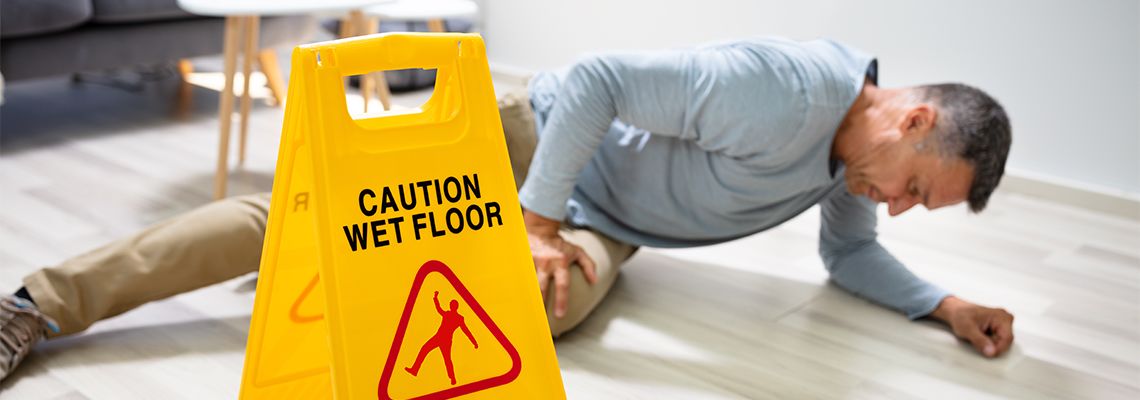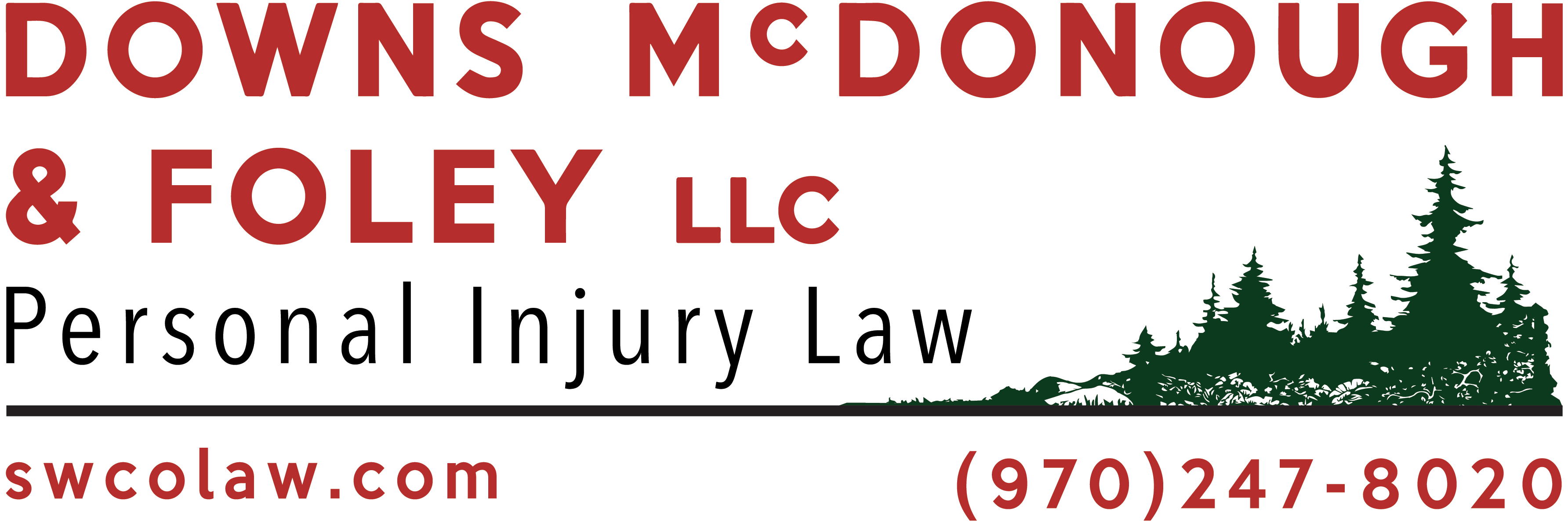
Hurt on a Friend Or Neighbor’s Property: Should I Sue?
Accidents happen, and sometimes they occur in the last place you'd expect—on the property of a friend or neighbor. While we all hope for a quick recovery from injuries, the question of compensation inevitably arises when medical bills and lost wages begin to mount. In Colorado, premises liability laws are in place to protect those who are injured on another person’s property, but deciding whether to sue a friend or neighbor is a challenging and emotional decision. This blog will help you understand the legal details and consider the implications of pursuing a personal injury claim in these situations.
Understanding Premises Liability in Colorado
Premises liability is a legal concept that comes into play when someone is injured on another person’s property due to unsafe conditions. In Colorado, property owners have a duty to maintain their premises in a reasonably safe condition. When they fail to do so and someone is injured as a result, the injured party may be able to file a personal injury claim.
What Is Premises Liability?
Premises liability refers to the responsibility of property owners to make sure their property is safe for visitors. This includes taking reasonable steps to prevent hazards such as wet floors, broken stairs, or poorly maintained walkways. In Colorado, the duty of care owed by a property owner depends on the legal status of the visitor: invitee, licensee, or trespasser.
Invitees, like friends or neighbors, are owed the highest duty of care. Property owners mustn't only fix known hazards but also inspect their property for potential dangers. If an invitee is injured because the property owner failed in this duty, the owner could be held liable for damages.
Should You Sue a Friend or Neighbor?
Deciding whether to sue a friend or neighbor after being injured on their property is undoubtedly difficult. There are several factors to consider, from the severity of your injury to the potential impact on your relationship. Here’s what you need to think about.
Evaluating the Severity of the Injury
One of the first things to consider is the severity of your injury. Serious injuries that require medical treatment, rehabilitation, or time off work can lead to significant expenses. In such cases, a personal injury claim might be necessary to cover these costs.
However, if the injury is minor and doesn't result in substantial medical bills or lost wages, you might decide that pursuing legal action isn't worth the potential strain it could place on your personal relationship.
The Role of Homeowners Insurance
It’s important to understand that homeowners insurance often covers personal injury claims. This means that if you file a claim, it’s the insurance company—not your friend or neighbor—who would be responsible for paying the settlement. Most people pay for homeowners insurance specifically for situations like these, where an unexpected accident results in injury.
Filing a claim with your friend or neighbor’s insurance doesn’t necessarily mean you’re taking money directly from them. Knowing this can sometimes make the decision to pursue a claim easier, as it helps avoid directly impacting your relationship.
Steps to Take After an Injury on Someone Else’s Property
If you've been injured on a friend or neighbor’s property, there are several steps you should take to protect your rights and make sure that you’re in the best position to pursue a personal injury claim if needed.
Seek Medical Attention
The first and most important step is to seek medical attention. Even if the injury seems minor, it's essential to have a medical professional evaluate your condition. Some injuries, like concussions or internal injuries, might not show immediate symptoms but can become serious if left untreated.
A medical record documenting your injuries is also crucial if you decide to pursue a personal injury claim, as it provides evidence of the harm you’ve suffered.
Document the Incident
After seeking medical attention, it’s important to document the incident. Take photos of the area where the injury occurred, noting any hazards that contributed to the accident. If there were any witnesses, gather their contact information as well. These details can be invaluable if you decide to file a personal injury claim, as they help establish the property owner's liability.
Notify the Property Owner
You should notify your friend or neighbor about the injury as soon as possible. Be honest and straightforward about what happened and discuss the next steps. It’s important to handle this conversation delicately, as it can be a sensitive issue. Most people will want to help and may even encourage you to file a claim with their insurance company.
Legal Considerations for Filing a Personal Injury Claim
If you decide to file a personal injury claim after being injured on a friend or neighbor's property, there are several legal considerations to keep in mind under Colorado law.
Comparative Negligence in Colorado
Colorado follows a comparative negligence rule, which means that if you’re partially at fault for your injury, your compensation may be reduced by your percentage of fault. For example, if you were 20% responsible for the accident—perhaps by ignoring a clear warning or acting recklessly—your damages would be reduced by 20%.
This rule is important when evaluating the potential outcome of a personal injury claim. If the property owner can prove that you were partially at fault, it could affect the amount of compensation you receive.
Statute of Limitations
In Colorado, the statute of limitations for filing a personal injury claim is generally two years from the date of the injury. This means you have a limited amount of time to pursue legal action. If you miss this deadline, you may lose your right to seek compensation altogether.
Given this timeframe, it’s important to act quickly if you’re considering a personal injury claim. Consult with an attorney as soon as possible to make sure that your claim is filed within the legal window.
Weighing the Pros and Cons of Filing a Lawsuit
Before deciding to file a lawsuit, it’s crucial to weigh the pros and cons carefully. While a personal injury claim can provide the compensation you need to cover medical expenses and other costs, it can also strain personal relationships.
The Financial Impact
One of the most significant pros of filing a personal injury claim is the potential financial compensation. Medical bills, lost wages, and other expenses can add up quickly, especially if the injury is severe. A successful personal injury claim can help alleviate these financial burdens.
On the other hand, lawsuits can be time-consuming and emotionally draining. Even though the insurance company typically handles the financial side of the claim, the process of filing a lawsuit and going through negotiations or court proceedings can be stressful.
The Impact on Relationships
The potential impact on your relationship with your friend or neighbor is another critical factor to consider. Filing a lawsuit, even if it's handled by their insurance company, can create tension and discomfort in your relationship. It’s important to have an open and honest conversation with the property owner before making a decision.
In some cases, discussing the situation openly can lead to a resolution without the need for a lawsuit. Your friend or neighbor may be willing to cooperate in filing an insurance claim, which can help preserve the relationship while still allowing you to receive compensation.
Deciding whether to sue after being injured on a friend or neighbor’s property is a challenging and personal decision. It involves balancing your need for compensation with the potential impact on your relationship. In Colorado, premises liability laws are designed to protect those who are injured due to unsafe conditions on someone else’s property. By understanding your legal rights and carefully weighing your options, you can make an informed decision that’s right for your situation.
Contact a Personal Injury Attorney
If you’re considering a personal injury claim, it’s advisable to consult with an experienced attorney, such as the lawyers at Downs McDonough & Foley, LLC. We can help guide you through the process and protect your interests. Our team strives to parse through the legal jargon and toward resolution, all whilst defending your rights. Contact us today to schedule your consultation. We serve Durango, Colorado as well as Pagosa Springs, Cortez, and Four Corners. We’re also licensed in Colorado, New Mexico, Texas, and Oklahoma.

